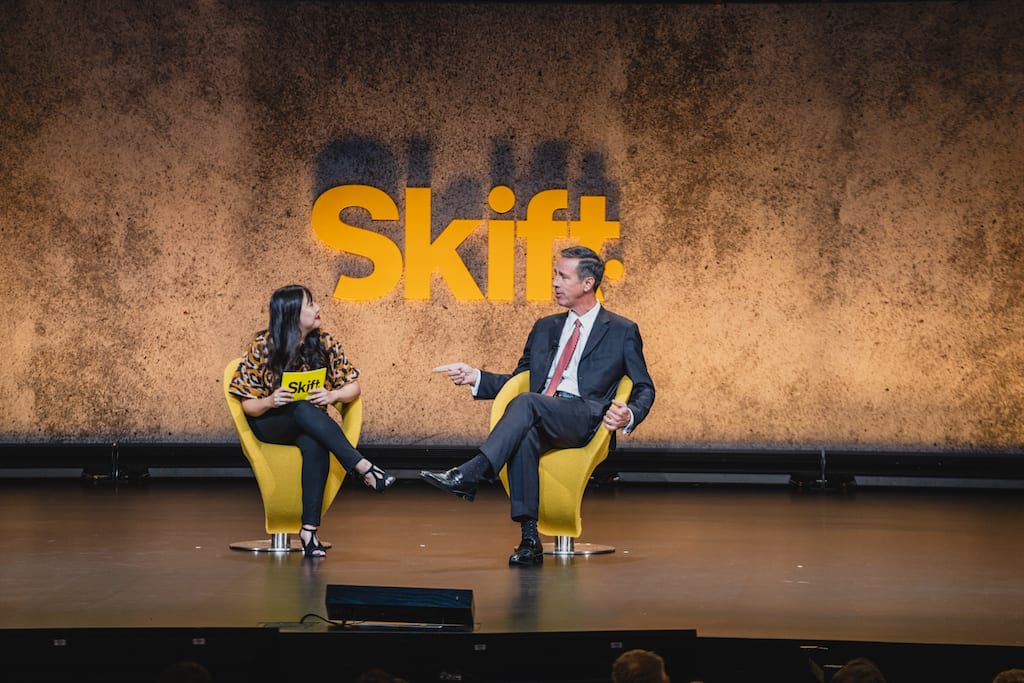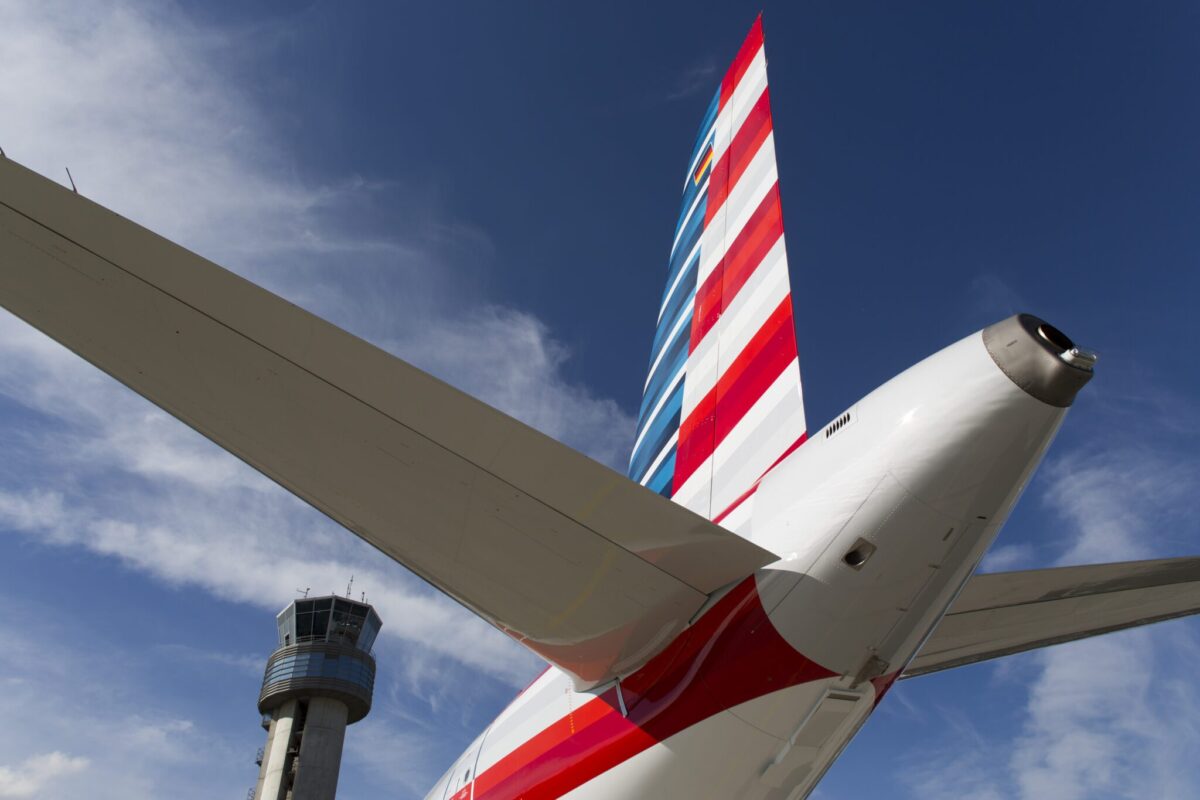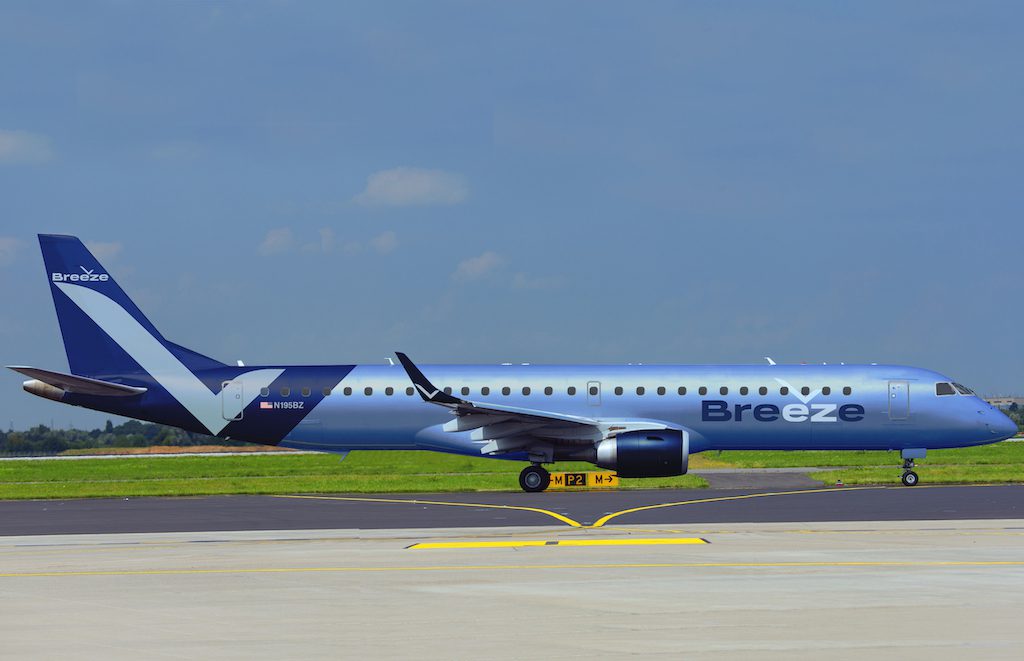What Marriott's CEO Had to Say About Airbnb, Amazon and Google

Skift Take
Marriott International isn't content to "stand still."
That was the overarching theme of Marriott President and CEO Arne Sorenson's opening presentation on Monday at the company's biannual investor day in New York.
Sorenson, along with a number of Marriott executives were in town to give investors an update on the company's three-year growth plan, which includes a goal of adding another 1,700 hotels to Marriott's already robust portfolio of more than 6,900.
Skift caught up with Sorenson in between presentations to discuss a variety of topics, from his views on recent travel acquisitions such as Airbnb's intent to buy HotelTonight to what he thinks of consumer response to Marriott's new loyalty program.
Here's what Sorenson had to say:
About That War for the Customer
Nearly one year ago at the same exact location — the New York Marriott Marquis — Sorenson spoke on a hotel CEO panel and proclaimed, "I think we are in an absolute war for who owns the customer. It's a long-term war, and 'long term' in digital space might be a few years."
That war, he suggested, was between traditional travel and hospitality companies and tech giants such as Amazon and Google.
When asked if he still feels the same, he said, "I think there is."
He said the ease with which e-commerce can handle the sales of an airline ticket or a hotel reservation makes it easy for players like Google, online travel agencies, and other digital-first companies to "obviously see an opportunity to make money, and rational economic decisions would be to say, 'How do we influence as much of the traveling community as we possibly can by having great tech tools or by offering, not just travel reservations, but airline flights, or restaurant reservations, or whatever it is?'"
He continued, "They are going to be trying to grow their business including grow their business with us. There are places where we should do business together, where they deliver real value to us. But, we also need to make sure that we are competing in their space a little bit which is, 'How do we make sure our technology is working well? How do we make sure the loyalty program is strong enough so that people are our customers in first instance that they can be?' And so, I think very much that competition is continuing."
But is it actually possible for any one company to own the customer? Or is that nearly impossible, as Hilton CEO Chris Nassetta has previously suggested?
Sorenson thinks it can be done, and that a number of brands will ultimately succeed, Marriott included.
"[It's] competitive in the sense that there are many folks that are engaged in this game, and many are potential winners here," Sorenson said. "I think it's unlikely there'll be one winner. I think there'll be a number of winners, and I'm absolutely certain we will be one of them. Why? Because, for one, we have the ultimate product, right? We have the hotels which are physical boxes, and while the reservation is easily sold online, the stay itself can't be shipped to somebody's home, so we have the ability to control the stay experience, and deliver a good product, not just a physical product, but a great service product."
He said that knowing consumers and delivering value to them through Marriott's loyalty program is how Marriott intends to do just that.
"Through what the hotels pay and what our partners pay, we have $5.5 billion dollars which is being used to promote our business directly to our customer. A big chunk of that is the loyalty program, and so our loyal customers are getting in excess of 5 percent of their gross spending back in value from us on free vacations. And, you think about all of us as consumers, if that's available to me by being Marriott's customer, by booking directly and being in their system, and it's not available to me if I come through different channel, there are a lot of people who are going say, 'No, no, I want that 5 percent plus value that comes back to me.' So, I think we'll compete really well."
On Making Bonvoy a Thing
So just how much of that $5.5 billion is being spent on promoting the new loyalty program, and making Bonvoy a thing?
Sorenson said, "Well, it's certainly not billions of dollars. It's tens of millions over the course of the year."
And despite chatter from loyalty points enthusiasts and even some disgruntled Marriott Bonvoy members who recently launched a site, bonvoyed.com, to specifically share their laments over the new program, Sorenson said consumer response is "actually quite good."
"I mean, obviously, we live in a chatter-y world," he added. "And, I know you know this. You have done a story about Bonvoy. And so, you can always find somebody's who's saying, "Well, where'd that name come from?" But, I think the bulk of the response we've gotten is: (a) we understood that you needed a name for the new combined program, and (b) it sounds like a fine name. 'What was that name again?'"
He added, the fact that "they're trying to remember it which is of course what the marketing is for, is to get that word out there so that it's familiar to folks. It is, of course, married with Marriott. Marriott Bonvoy are together so you don't necessarily have to remember it the first moment all by itself. You'll be able to bring it back to Marriott."
On Airbnb's Acquisition of HotelTonight
When asked for his thoughts on Airbnb's intent to acquire HotelTonight, Sorenson said he wasn't surprised.
"I think that they're obviously a digital-first company," he added. "They're trying to expand into adjacencies that seem to make sense to them, and they responded with the acquisition of HotelTonight."
He also doesn't see much impact to Marriott's business if and when Airbnb closes on its acquisition of the last-minute hotel booking platform.
"Our portfolio doesn't do business with HotelTonight in any material respect because it is, essentially a last-minute discount platform that's not consistent with the way we manage our revenue," Sorenson added. "And, it's interesting to see what they do with it."
On Google Hotels
Sorenson made a brief reference to the debut of Google Hotels during his opening presentation, and he said that he, like everyone else in travel, is keeping a close eye on the new product.
"I'm not expert yet enough in exactly how their latest thing is, what the algorithms look like, or exactly the really important details of how it works," he said. "I'm not surprised that Google is continuing to experiment in this place because the economics of travel, again, are meaningful, and they obviously have a powerful decision in search, and they're trying to figure out, 'OK, what's our best approach to both deliver something which is attractive and easy for consumers and profitable for Google?' And, I'm sure this is their latest experiment to see what comes from that."
On Amazon's Ambitions for Travel
During the investor day presentation, Marriott executives touted the exceptional value of the company's joint venture with Chines e-commerce giant, Alibaba, often referred to as the Amazon of China.
According to Brian King, Marriott's global officer of digital, distribution, revenue management, and global sales, some 2.7 million new loyalty members enrolled with Marriott in 2018 thanks to the Alibaba partnership, and Chinese outbound tourism remains the biggest tourist segment in the world.
Would Marriott ever consider a similar partnership outside of China with Amazon? Sorenson said, "never say never" but that it's unlikely.
"Alibaba was interesting," he said. "There are aspects of the Alibaba deal that would be different from whatever you'd hypothesize with Amazon. Alibaba was not in travel in any respect. We were newer to China and to the United States. We thought we could do something that would be a net advantage for both of us, and we think that the first year and a bit has been really quite good proof of that."
"Amazon," he added, "is a, I would say, a huge force, a tremendous power, with broad familiarity, and lots and lots of customers. But, we're also strongest in the U.S. where we've got a big portfolio of customers too, so, you know, you never say never, but I don't know that I'd predict it."
On Those Ongoing Expedia Negotiations
Sorenson had no updates on Marriott's current ongoing contract negotiations with online travel agency Expedia, but if Marriott Global Chief Commercial Officer Stephanie Linnartz's remarks during the investor day presentations were any indication, it's that Marriott isn't just negotiating for lower commission rates but for the ability to turn on — and turn off — certain distribution channels at certain times, Expedia included.
Linnartz said, "The second objective that we have when we're negotiating with the OTAs is that we want to be able to or we must be able to control how our rates and inventory are displayed. That's critical to us. And then third, and importantly, is lowering our distribution cost. So, it is absolutely more than just about lower commissions. It's about differentiating our own channels is equally important and being able to control how our rates and inventory are displayed."
Many industry observers have been paying close attention to the outcome of the negotiations between Marriott and Expedia, surmising that if Marriott is successful in lowering its commission rates and getting more favorable outcomes it could signal a major shift in the relationship between hotels and online travel agencies.
On Valuing Hotel Owners
Another stakeholder that both online travel agencies and hotel companies like Marriott have been mindful of courting is the hotel owner. Since Marriott's acquisition of Starwood in 2016, its portfolio has grown to include a whopping 30 different brands, and for some Marriott hotel owners and investors, that scale also poses the risk of cannibalization and pits Marriott hotel owners against one another.
In fact, most recently, an activist investor, Jonathan Litt, nominated himself for a seat on Marriott's board. Litt, who founded hedge fund Land & Buildings Investment management, and who owns a 0.03 percent stake in Marriott as of December 31, has been privately persuading Marriott to eliminate some of its underperforming brands in order to compete better with its peers.
When asked if Marriott does, indeed, have too many brands that negatively impact its owners, Sorenson said he doesn't see things that way.
"I think the breadth of choice is a fabulous advantage, not disadvantage, and that choice can be looked at in terms of number of brands you have," Sorenson said. "It could be looked at in terms of number of hotels you have. It could be looked at in number of markets that you're in, number of price points you're in. They're all a fair way of looking at the breadth of choice. But, having that breadth is a good thing."
He continued, "Even for owners, absolutely, because we deliver stronger contribution from our pipes for reservations and loyalty program. We deliver economies of scale around all these things which is advantageous to the owners."
Furthermore, Sorenson suggested, having that breadth of brands and healthy competition compels owners to focus even more on their quality and operations.
"To some extent, you could say, they're better off competing within the family as opposed to outside the family for a number of reasons," he added. "But, they've got to make sure that they're positioned well, too. And, there will be a few hotels in various places, Legacy Starwood or Legacy Marriott, who might say 'I was getting the benefit of all of that system before, and now I'm sharing it with somebody else, and I feel like I'm at a disadvantage because of product quality, or location, or something else.'"
But over time, Sorenson, said, "that's actually that's likely to further enhance product quality. And, we're also convinced that the higher our share — what we've seen so far in the markets where our share is the highest — is that actually we perform better on average for the portfolio that tells them where our share is lower."
On the Data Breach
Sorenson, who has recently spoken at length about the massive data breach the company discovered last year, even testifying before Congress earlier this month, said that Marriott and the hotel industry as a whole is hopeful that it can prevent security incidents like this from happening in the future.
"Obviously we are dealing with this more directly than anybody else in the industry," Sorenson said. "I'm reasonably confident that every other company in the industry has said, 'OK, let's take a look at what happened to Marriott and figure out what it means for the way we're set up.' And, there are lessons in this."
Those lessons, he said, include "what do you do in the context of an M&A activity or in terms of bringing on new hotels, and how do you do what you can to protect data there."
One thing Marriott is looking at closely today is "what categories of data that we have should always be encrypted for example? And, where do you store them, and how much is stored centrally, and how much is sort of distributed?"
He added, "We're not done with our work yet on deciding exactly what changes we'll make. Some changes we've already implemented, but some we're still working our way through."
"This is not a place where we are particularly interested in keeping secrets to ourselves," he added. "So, if we learn something that can be helpful to the industry, it's something that we're likely to share."




